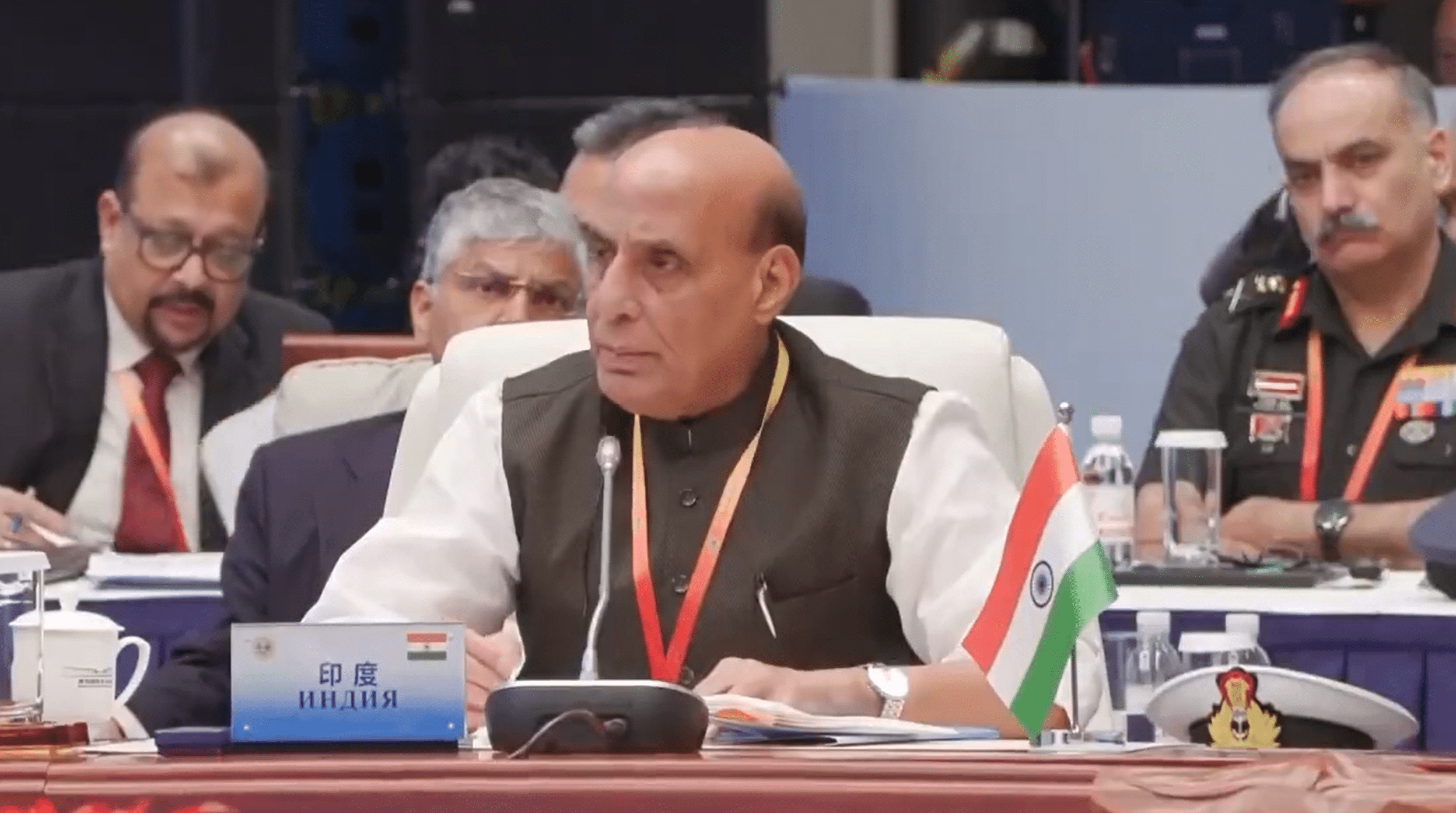Every act of terrorism is criminal and unjustifiable, SCO urged to unite

Raksha Mantri Shri Rajnath Singh delivered a significant address on June 26, 2025, at the Shanghai Cooperation Organisation (SCO) Defence Ministers’ Meeting held in Qingdao, China. He emphasized the urgent need for member countries to unite against terrorism, which he identified as a major threat to regional peace and security. Singh highlighted the challenges posed by radicalization and extremism, urging a collective response to combat these issues and hold accountable those who sponsor terrorism.
Call for Collective Action Against Terrorism
During his address, Shri Rajnath Singh underscored the necessity of decisive action to combat terrorism and the proliferation of weapons of mass destruction. He pointed out that peace and prosperity cannot coexist with terrorism, particularly when non-state actors exploit these threats for their own agendas. Singh criticized countries that utilize cross-border terrorism as a political tool, calling for a unified stance against such double standards. He urged SCO member states to openly condemn nations that harbor terrorists, reinforcing the need for accountability in the fight against terrorism.
Singh also referenced India’s recent military response, Operation Sindoor, which was launched following a terror attack in Pahalgam, Jammu & Kashmir. He described the attack as a targeted act of violence based on religious identity, claiming responsibility by a proxy group linked to the UN-designated terrorist organization Lashkar-e-Taiba. This operation exemplified India’s commitment to a zero-tolerance policy towards terrorism and its right to defend itself against such threats.
Addressing Radicalization and Technological Threats
The Raksha Mantri highlighted the importance of preventing radicalization among youth, recognizing the role of the SCO’s Regional Anti-Terrorist Structure (RATS) in addressing this challenge. He noted that the joint statement from the SCO Heads of State on countering radicalization reflects a shared commitment to tackle terrorism, separatism, and extremism.
Singh also raised concerns about the technological advancements utilized by terrorists, such as drones for smuggling weapons and drugs. He emphasized that traditional borders are no longer sufficient to contain these threats in an increasingly interconnected world. The complexity of modern challenges, including transnational terrorism and cyber-attacks, requires a collaborative approach rooted in transparency and mutual trust among nations.
The Role of SCO in Global Stability
In his address, Singh acknowledged the significant role of the SCO in the current geopolitical landscape, noting that member countries account for approximately 30% of the global GDP and house about 40% of the world’s population. He stressed that creating a safe and stable region is a collective responsibility that can enhance the quality of life for all citizens.
Singh pointed out that globalization is losing momentum, and the weakening of multilateral systems complicates the resolution of pressing issues, from maintaining peace to economic recovery post-pandemic. He warned that competition among major powers is intensifying, with trade and technology increasingly becoming tools of geopolitical rivalry. Singh advocated for reformed multilateralism to foster cooperation and prevent conflicts through dialogue and collaboration.
Commitment to Regional Development and Cooperation
The Raksha Mantri reaffirmed India’s commitment to enhancing connectivity with Central Asia, emphasizing that improved trade relations foster mutual trust. He highlighted the importance of respecting the sovereignty and territorial integrity of SCO member states in these efforts.
Singh also reiterated India’s steadfast support for peace and stability in Afghanistan, outlining immediate priorities such as humanitarian assistance and developmental initiatives. As Afghanistan’s largest regional development partner, India is dedicated to capacity-building efforts for its people.
Furthermore, Singh addressed non-traditional security challenges, including pandemics and climate change, which transcend national borders and impact global populations. He advocated for responsible policies and international cooperation to tackle these issues. India’s initiative on the Coalition for Disaster Resilient Infrastructure exemplifies how nations can collaborate to enhance disaster preparedness and response capabilities.
In conclusion, Singh articulated India’s vision of “Security and Growth for All in the Region” (SAGAR) and “Mutual and Holistic Advancement for Security and Growth Across Regions” (MAHASAGAR), emphasizing the need for cooperation and mutual trust among SCO members to address contemporary challenges effectively. He called for a unified approach to strengthen stability and security in the region, guided by the principle of “One Earth, One Family, One Future.”
Observer Voice is the one stop site for National, International news, Sports, Editor’s Choice, Art/culture contents, Quotes and much more. We also cover historical contents. Historical contents includes World History, Indian History, and what happened today. The website also covers Entertainment across the India and World.

